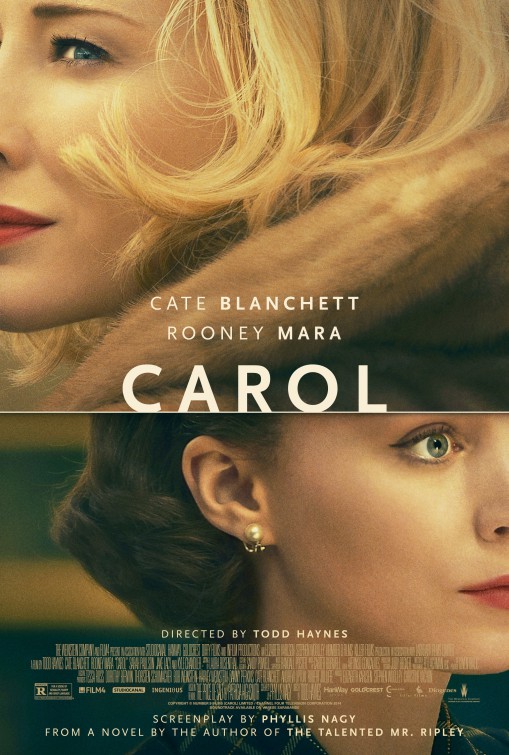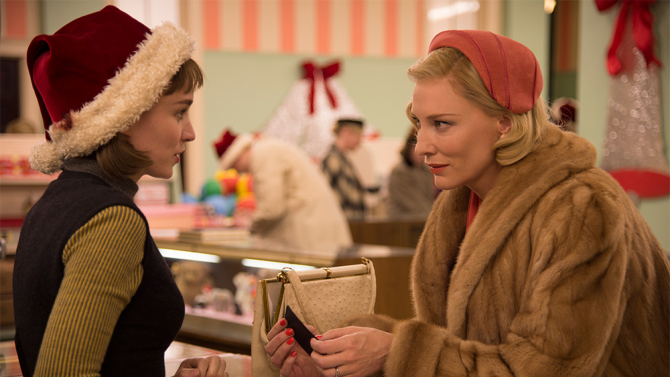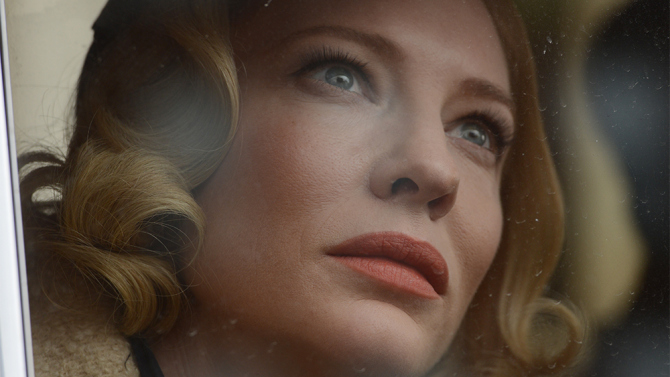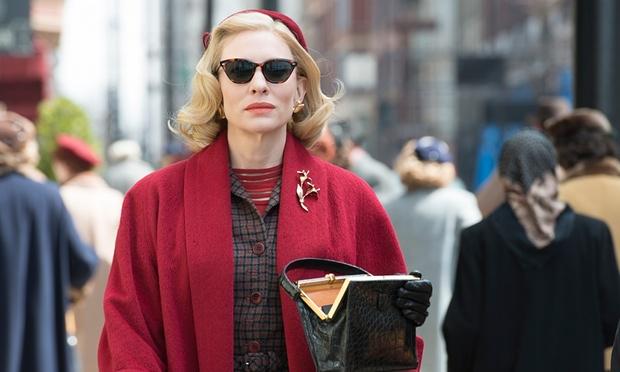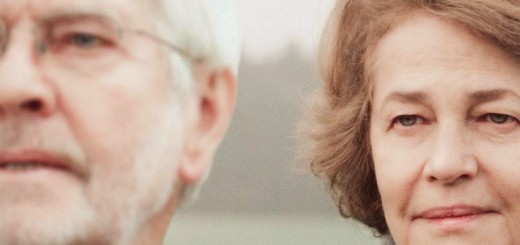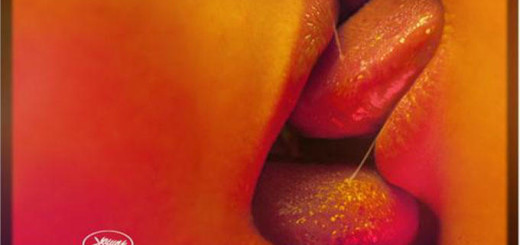CAROL Review
Director: Todd Haynes
Genre: Romance
Release: 2015
Pretty, melancholic, sensitive, and functioning almost entirely off of the quiet on-screen chemistry of its two stars, Todd Haynes’ CAROL is deeply romantic and yet strikingly forgettable. What’s strange about Haynes’ film is that there is nothing that it does wrong, it merely forgets to do enough right to make its audience really care. Shouldering its rather uneventful narrative with an uninspired conflict of maternal love and a custody war, the 2015 film feels part KRAMER VS KRAMER, part THE GRADUATE, and yet its universal praise at the festival circuit leaves one dumbfounded, culminating in the disappointing conclusion that CAROL’s entire source of praise derives from its lesbian narrative.
Blanchett tries to jingle Mara’s Bells
On a performance level, CAROL succeeds to a fault. Mara and Blanchett are deeply empathetic characters that come from completely different walks of life. The film’s strengths shine within its quiet moments of melancholy, showcasing Mara deep in thought as Blanchett takes her to nice restaurants and on a cross-country roadtrip. The entirety of Haynes’ film plays out like a vague memory, with the fondest moments playing out in slow-motion. And yet despite the innate beauty of this release, it never takes its characters anywhere that could make for a more compelling narrative.
Longingly reading our Crossfader review
Relying so heavily on trying to create a compelling aura of faint recollection, CAROL ultimately hampers its narrative from actually going anywhere new within its genre. Would CAROL be as well regarded if it were merely a story about a married woman’s affair with a young man? The answer is an unequivocal no, because although Haynes has crafted a compelling character piece, he has failed to create an external conflict that feels truly gripping.
Surely it’s a little unjust to blame Haynes for this entirely. After all, CAROL is a book adaptation, but when Blanchett’s love for Mara is opposed almost entirely by a shoehorned custody battle over her daughter, the film stops feeling like a genuine story as much as a clearly scripted piece of entertainment. Even Mara’s love for Blanchett isn’t expanded into an intriguing outward desire. Haynes attempts to complicate her feelings by giving her a loving boyfriend and putting her in a moral dilemma where she sacrifices a trip to Paris in order to be with Blanchett, but these details come across as so inconsequential that it doesn’t matter what they say or do outside of their love life. But then again, maybe that’s precisely the point.
We all assumed DON’T LOOK NOW couldn’t be franchised
Photographed beautifully during its somber dialogue scenes, Edward Lachman’s cinematography feels heavily reminiscent of the works of Danny Cohen, framing Mara and Blanchett to the far left or right of the frame and capitalizing on negative space in order to create an aura of solitude in the bustling city of 1950s New York. Unfortunately, the same can’t be said for the authenticity of New York in execution. Exterior set pieces feel stagey and the city’s grit is virtually absent. The entire backlot feel of the film is only reduced during the film’s stint outside of The Big Apple. During these short segments, the era feels surprisingly authentic. Unfortunately, this is once again disrupted by painfully cheesy dialogue cues from supporting characters who all seem to be doing their best 50s-man-with-hat impression, yelling phrases like “you look like a million bucks” into a window like some parody of ROMEO & JULIET.
In a way, CAROL suffers from the same errors as this year’s SUFFRAGETTE, showing its viewers how awful it was to be a woman during a certain point in history, while not factoring into how this may still be relevant today. Culminating in a slow and rather beautiful finale, CAROL knows what it is doing right, but it never gives the audience enough to cry about other than the obvious stigma of being a lesbian in 1950s America. And even then, Haynes doesn’t do a particularly good job at making it seem like it was a difficult life to live. Outside of the custody battle, Mara and Blanchett don’t struggle much in their relationship, which makes it hard to understand what exactly Haynes is trying to tell his viewers. Was he merely trying to showcase the trials and tribulations of lesbians in the 1950s? If so, was it really necessary to make a film about it?
Verdict: Do Not Recommend

